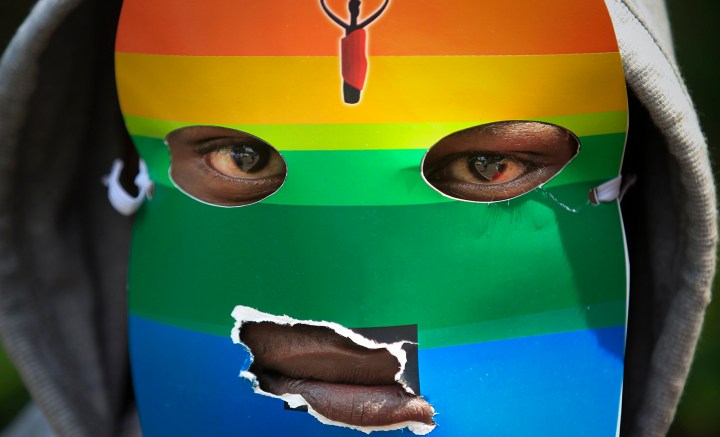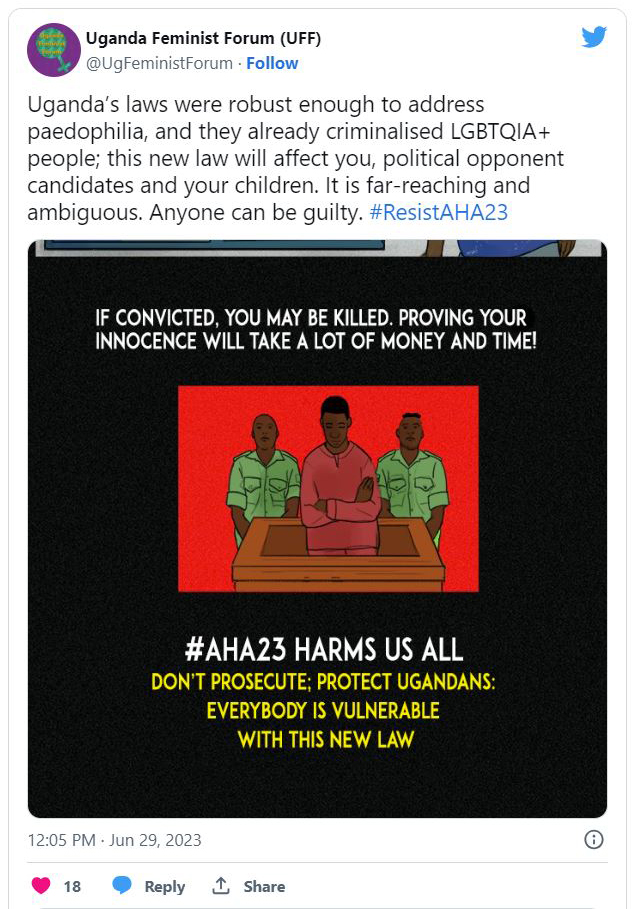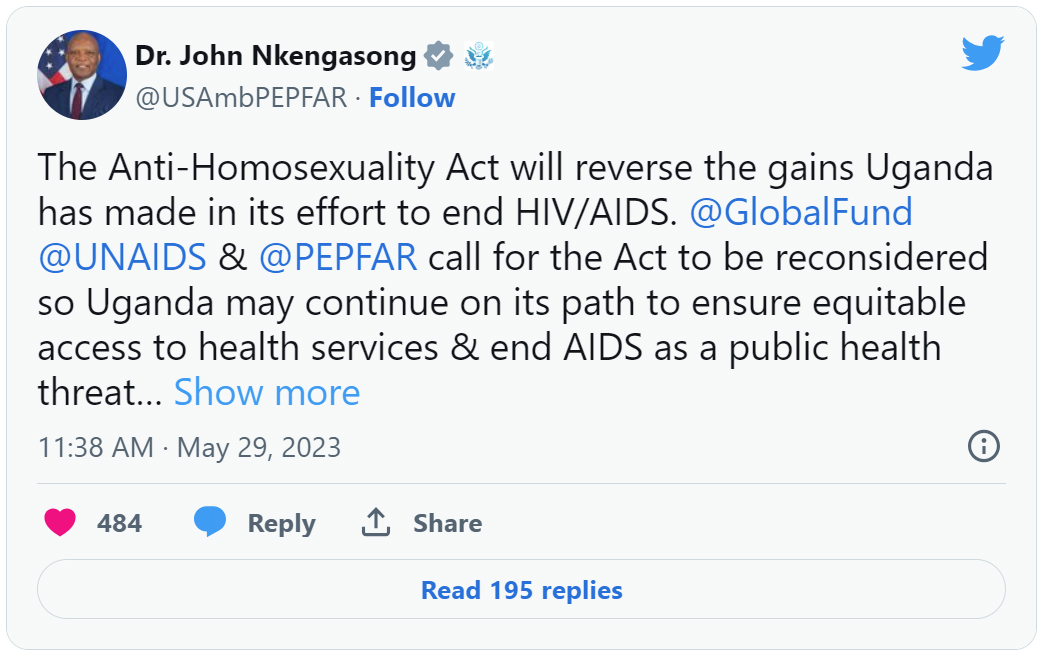HEALTH POLICY WATCH
Attacks on LGBTQ Ugandans spike as World Bank faces pressure to suspend lending over Anti-Homosexuality Act

As Pride month celebrations wind down in parts of the world that recognise LGBTQ rights, Ugandan human rights organisations have recorded a record number of abuses against that community following the introduction of the Anti-Homosexuality Act in that country one month ago.
The World Bank sent a fact-finding mission to Uganda last week following an international appeal by over 170 organisations to suspend future lending to Uganda following the enactment of the law.
Beating, kidnapping and evictions of LGBTQ people have been recorded by the Human Rights Awareness and Promotion Forum (HRAPF) by people who have come to its legal aid clinic for help.
A consortium of civil society groups called the Strategic Response Team (SRT) has estimated that the number of attacks on the LGBTQ community in the past month is around 300 – 10 every day.
In the three weeks (30 May-20 June) following the introduction of the Act, the HRAPF’s legal aid clinic attended to 30 cases involving discrimination against LGBTQI people based on their sexual orientation or gender identity — in contrast to 10 cases over the same period last year.
In one case, a man was attacked in his home by a group of men one night. He was beaten and some of his property burnt by the mob, which accused him of being a homosexual.
In a similar incident, a lesbian was attacked by two men in her home. She had been evicted by her landlord on the grounds of homosexuality but did not have the resources to move.

“Most of the violations are by non-state actors, who use the prevalent homophobic environment to carry out attacks and threats knowing that LGBTQ persons will not have recourse to the police for fear of being arrested,” according to HRAPF.
“Indeed, most of the cases were not reported to the police for fear of arrest under the Act. The law is therefore promoting an environment of lawlessness to the detriment of real or suspected LGBTQ persons in Uganda, without any recourse to the law for remedies.”
The forum noted that its report is not comprehensive as it only reflects clients that have sought its help, whereas there are other legal aid providers.
The attacks are being documented to support the court petition to get the Anti-Homosexuality Act overturned for being in contravention of the country’s Constitution.
World Bank under pressure
During last week’s fact-finding mission to Uganda, World Bank delegates met human rights organisations but have yet to act against Uganda.
When that country introduced a similar law in 2014 – referred to as the “kill the gays” law, – then-World Bank President Jim Yong Kim postponed a $90-million loan to the Ugandan government in response. The current law goes even further as it contains the death penalty as well as potential prison terms for minors.
However, aside from issuing a statement on May 31 stating that Uganda’s Anti-Homosexuality Act is “not consistent with the values of non-discrimination and inclusion that the institution upholds”, the Bank has yet to take action.
Numerous attempts by Health Policy Watch to get comment from the World Bank about its visit to Uganda and any action they intend to take went unheeded, although the Bank finally acknowledged receipt of the queries on Thursday.
HIV programmes under threat
Meanwhile, Uganda’s Ministry of Health sent a circular to health facilities recently urging them to continue to assist all citizens seeking healthcare.
This is likely to be in response to pressure from international health agencies, including the US President’s Emergency Plan for Aids Relief (Pepfar), which is concerned that the Act will prevent LGBTQ people from getting access to health services.
Pepfar has suspended meetings with the Ugandan government to discuss the adoption of its Country Operational Plan for 2023, citing the Anti-Homosexuality Bill as the reason. Pepfar spends around $400-million in the country annually.
Pepfar has “invested over $5-billion in HIV prevention, care, and treatment services in Uganda” over the past 20 years, including the massive scale-up of its antiretroviral therapy (ART) programme, which is estimated to have averted almost 600,000 HIV-related deaths and 500,000 new HIV infections, according to a statement from the US Embassy in Uganda earlier this year.
“The first person in the world to receive Pepfar-supported HIV treatment almost 20 years ago is a Ugandan who is alive and thriving, further demonstrating the success of this lifesaving programme,” the US Embassy added.
According to UNAids data, 1.4 million Ugandans are estimated to be living with HIV, and over 1.3 million are currently receiving Pepfar-supported HIV treatment.
However, a cornerstone of the HIV/Aids sector’s approach to HIV globally is targetting “key populations” who are most vulnerable to HIV — including men who have sex with men (referred to as such as many do not identify as gay, particularly in countries where they would face persecution if they did).

Pepfar head Dr John Nkengasong recently said that the “passage of the Anti-homosexuality Act jeopardises efforts to end HIV/Aids, achieve health equity, and risks the lives of LGBTQI+ individuals and other key populations that need lifesaving treatment and prevention services.”
A petition challenging the constitutionality of the Act has been filed, as well as a notice of motion to suspend its enforcement pending the determination of the petition. The notice of motion was filed by eight people including Fox Odoi-Oywelowo, the only Member of Parliament to oppose the law.
Uganda’s Attorney General has responded to the petition, and Odoi-Oywelowo and others are in the process of responding to his letter, according to a civil society report. DM
First published by Health Policy Watch.


















Comments - Please login in order to comment.